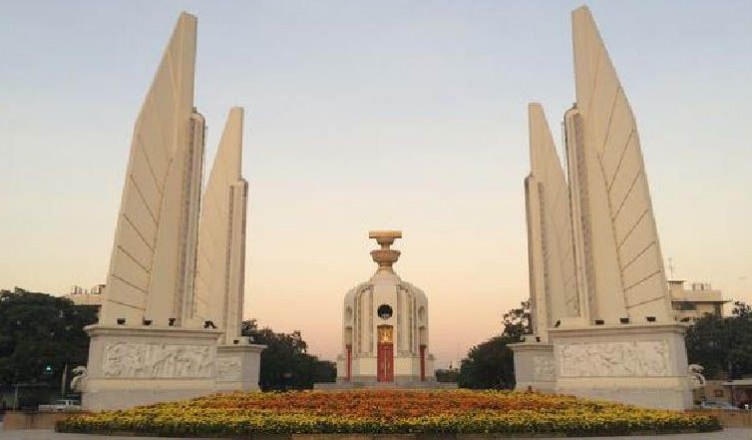The Thailand government is based a constitutional monarchy quite similar to that of the United Kingdom, in which a Prime Minister serves as head of a parliamentary government and a hereditary Thai king functions as head of state.
This form of Thailand government has been in place since 1932 following nearly 700 years of outright rule by various lines of Thai kings; the current Thai King, His Majesty King Bhumibol Aduyadej (Rama IX) is the reigning monarch of the Chakri Dynasty that has ruled Thailand since the fall of Ayutthaya and the founding of the Rattakosin Era. The widely revered Thai King serves as spiritual leader of the country as well as head of state, but wields no outright political authority.
The Thailand Government is formed by a coalition of political parties headed by a Prime Minister. While Thailand has undergone numerous coup d’etats since becoming a constitutional monarchy and Thailand politics is a contentious affair, Thai people are politically active and place high value on their arguably tenuous democracy.
Government of Thailand
Thailand has existed as a modern nation-state since the founding of the Chakri Dynasty and the establishment of Bangkok as its capital in 1782. In 1932, a ‘revolution’ absolved the absolute rule of the monarchy and established a Constitutional Monarchy, removing the political authority of the crown and founding a nascent ‘democracy’.
In 1946, direct elections were finally held in which the people of Thailand voted for members of a bicameral legislature (Senate and House of Representatives) to be presided over by a Prime Minister representing the executive branch. The Judiciary, including a Supreme Court, acts independently of the executive office and the legislature, though it was not until the 1996 constitution that more effective checks and balances were instituted.
From its inception ‘democracy’ in Thailand has been turbulent, with 17 coup d’etats passing power back and forth between leaders of the military and an elite bureaucracy that borders on plutocracy. The country has also been governed under 17 different constitutions; the Kingdom’s current constitution the result of the most recent coup d’etat, a bloodless overthrow of then Prime Minister Thaksin Shinawattra in 2006.
Currently, Thailand is embroiled in political wrangling over the implications of that coup and the subsequent legislative shake up caused by mass protests both against and in favor of the former Prime Minister. Nonetheless, the Thai people are very politically active and value their freedom despite their tenuous democracy.
Read more: The Monarchy and the King of Thailand
